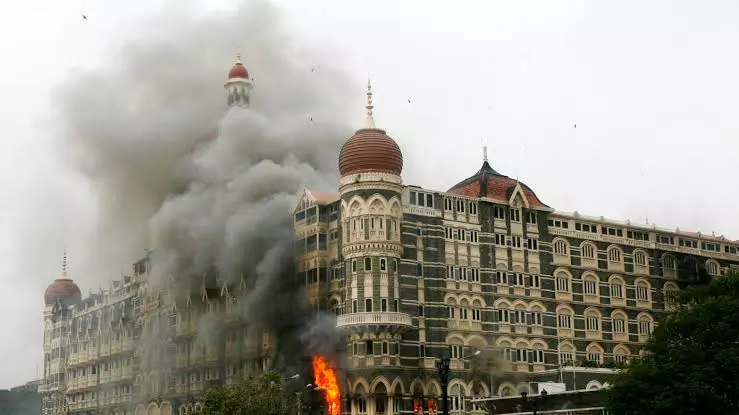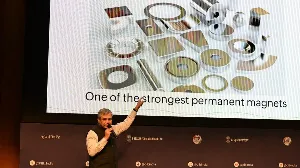US honours 26/11 victims as Mumbai marks 17 years since terror attack

The United States Embassy in India has paid tribute to the victims of the 2008 Mumbai terror attacks, marking 17 years since one of the deadliest assaults in the country’s history. The Embassy reiterated Washington’s commitment to supporting India’s efforts to bring those responsible to justice, highlighting the extradition of key accused Tahawwur Hussain Rana as an important step.
In a statement shared on social media, the Embassy said it “honours the memory of the victims” and stands in solidarity with the survivors and families affected by the attacks. Rana, a Canadian businessman of Pakistani origin, was extradited earlier this year for his alleged role in helping plan the assault carried out by militants from Lashkar-e-Taiba.
Global tributes and solidarity
Diplomats from several countries also marked the anniversary. Israel’s Ambassador to India, Reuven Azar, described the attack as “an assault on humanity” and said his country stands firmly with India against terrorism. France’s Ambassador Thierry Mathou offered similar sentiments, renewing France’s condemnation of extremist violence and expressing solidarity with India.
Indian authorities are holding a series of commemorative events across Mumbai. According to the Ministry of Home Affairs, a memorial ceremony has been organised at the Gateway of India under the theme “Neverever,” with tributes to security personnel and civilians who died. Schools and colleges in the city will also take part in pledge ceremonies aimed at promoting peace and vigilance.
Remembering 26/11
On 26 November 2008, ten armed militants arrived in Mumbai by sea and launched coordinated attacks across the city, targeting crowded landmarks including the Taj Mahal Palace Hotel, the Oberoi Trident, the Chhatrapati Shivaji Maharaj Terminus, the Jewish centre at Nariman House, Leopold Café and a public hospital.
Over four days, 166 people were killed and more than 300 injured. Nine of the attackers were killed, while the sole surviving gunman, Ajmal Amir Kasab, was captured by police. He was sentenced to death in 2010 and executed in 2012.
Landmarks across South Mumbai still bear physical reminders of the assault, including bullet scars and memorials to victims. The bust of Assistant Sub-Inspector Tukaram Omble, who died while helping capture Kasab alive, remains one of the most prominent symbols of the city’s resilience.
Developments in the investigation
India’s National Investigation Agency has sought additional information from the United States under the Mutual Legal Assistance Treaty to continue its probe into Rana’s alleged role. The request was made several months after Indian investigators questioned him following his extradition.
Rana is accused of facilitating reconnaissance and logistical support for the attackers at the behest of Lashkar-e-Taiba, a Pakistan-based militant organisation that India holds responsible for orchestrating the operation.
Context: India’s counterterrorism stance
The anniversary comes at a time when Indian officials continue to emphasise a policy of “zero tolerance” toward terrorism. Security specialists say that while India has strengthened its counterterrorism infrastructure since 2008, regional tensions and transnational extremist networks continue to pose challenges.
The commemorations also follow a recent bombing in New Delhi on 10 November, which has renewed debate about internal security and intelligence preparedness.
As night falls, the Gateway of India is expected to be illuminated in the colours of the national flag, reinforcing the city’s remembrance of the attack and its resolve to prevent such tragedies in future.
If you would like a shorter news brief or a headline-optimised version, I can prepare that as well.

Tata Sierra 2025 Launch: A Blend of Luxury and Performance

India's Cabinet Approves Rs 7,200 Crore Scheme for Rare Earth Magnets

HP Plans Job Cuts Amid Tech Sector Restructuring

Nuvama Research Gives Premier Energies 'Buy' Rating with Target of Rs 1,270





